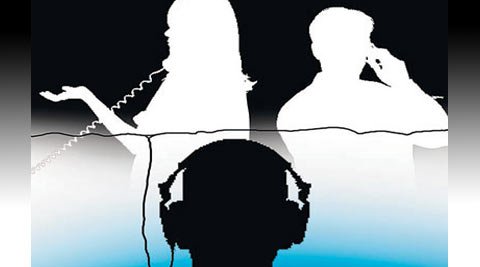The first video we watched of Juan Enriquez's Internet Tattoos goes into depth about how everything on the internet will leave a trail on you, like you got a permanent stamp or a tattoo. He goes into the idea that we talked about in class, the fact that someone gave the cute name of "cookies" that tracks where you go is bad. The fact that they can know everywhere you browse and look is almost terrifying. Just thinking of how you will be unable to do anything with any sort of anonymity. What I find funny is how he talks of how Facebook bought the company that is doing high level facial recognition. What he elaborates that makes it scary is his dress scenario where a camera in the store can see your face, it will check what you see online and post online all just based upon your face. Then this tech can tell the shopkeeper what dress to hand you that most fits all of that information. Very scary to have that amount of information out there. It would be almost like having someone live in your head. Then Juan Enriquez wraps it all up with some Greek myths and how this is punishing people with immortality.

Catherine Crump's NSA type police surveillance the TED talk goes into detail on how giving police high tech NSA/Military type tech is an issue. How the police have a tracker that scans license plates for people who may be wanted or such, but the problem is it saves the info of the plate, the scan and where it is. Allowing police to track you as they are passive does this process automatically, the police officer doesn't have to do a thing for this tech to do this, and since it's so cheap they no longer throw away the data. This allows the government to know too much about us. Knowing this info can be abused just to put people on a list depending on where they have been. This tech will be abused. The question is what will happen with it.

Christopher Soghoian Phone Wiretapping: Soghoian goes into the history of phone tapping. He explains that in the past phone companies gave recordings of calls to the government. And that the transmissions for phone calls were set up for wiretapping first and foremost. He explains, Apple and WhatsApp (now owned by Facebook) have very strong encryption technology within their services that prevent wiretapping. He explains the fight of encryption vs surveillance and the fire line of safety of being able to monitor people and having privacy. He wraps it all up with saying that you should use the apps talked about earlier and the encryption can protect you against not just governments but people who may be trying to spy on you

The takeaway is the internet has always been a useful place and can be helpful, but it always has had some caveats to it. When thought of the downside technology kind of has always been this pandora’s box that only the government could put it all back in. Even still I am unsure if the government could truly put it back at the scope it is at. Juan Enriquez’s thoughts of the internet being like tattoos is a great metaphor for it. Understanding you're getting most of these tattoos without knowing is troubling. Also, the thought of being immortalized on the internet was once a sweet thought in my head but since hearing his TED talk, I have since changed my mind on that. I think understanding cookies, using a vpn, and just being wise of what you do is the only way to combat this. Catherine Crump’s talk about how the police can track your location is scary, the fact they do not throw away the information is concerning and the thought of being put on a list if your car is near somewhere and while the implications of the technology is okay, I can only see this being abused like she said. The only way to do anything about this is to lobby the government to throw away this data. I really dislike the thought of this being automatic as well. By far, my favorite TED talk was Christopher Soghoian. His words on encryption should be heard by all people. My friends and family should know what is most secure not just from the government, but anyone who may try to tap in and listen to our conversations. It's creepy to think people can listen to our conversations and do whatever with it. It's more concerning because the system was set up that way. The takeaway being using a service like facetime or iMessage to help protect it. I do not want to trust WhatsApp because it's owned by Facebook. Facebook and Google are just untrustworthy companies and I don't know what they are doing. I liked when Apple wouldn't give the key to open all phones to the FBI. I understand from a PR side when they caved because it was the San Bernardino shooters phones they were trying to unlock, but it was a big step until they gave the FBI that information. Apple seems semi trustworthy besides their pricing , defectiveness, and their hypocrisy with human rights.

No comments:
Post a Comment